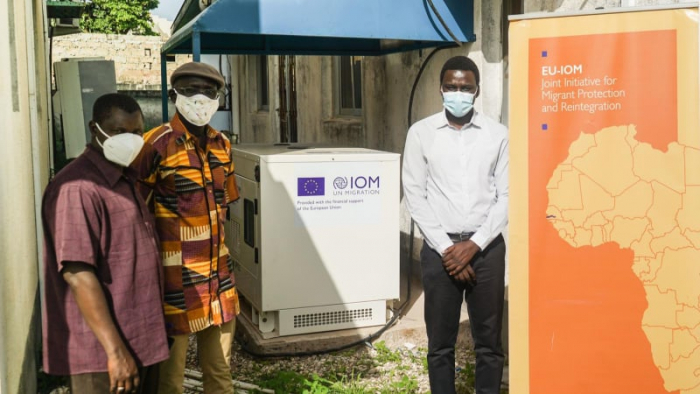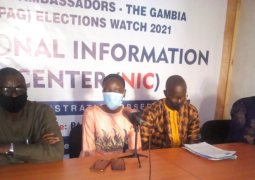
The stand-alone generator is capable of supplying electricity to the NPHL’s Molecular Laboratory Unit. It provides uninterrupted power supply required by Polymerase Chain Reaction (PCR) testing machines and will allow for testing runs of samples to be completed without errors. This donation comes in response to a call from the Ministry of Health, noting that without a secure source of stable electricity, several testing runs were aborted thereby wasting valuable time and resources in the midst of the COVID-19 pandemic.
“Sometimes, electricity is not stable, and a blackout could happen in the middle of laboratory procedures. This generator will bring predictability, and this is very important for the turnaround time for the lab,” explains Dr. Mustapha Bittaye, Director of Health Services, Ministry of Health.
“For several weeks the Government’s COVID-19 situational reports mentioned the electricity challenges at the NPHL. The European Union naturally stepped in again to help the Gambian people in fighting this pandemic. I thank our implementing partner the International Organization for Migration for making this support a reality” – says the European Union Ambassador to the Republic of The Gambia, H.E. Attila LAJOS.
This donation, made under the framework of the EU-IOM Joint Initiative for Migrant Protection and Reintegration, builds on previous support from the European Union toward the national COVID-19 response. In partnership with the International Organization for Migration (IOM), 2,000 protective suits and shoe coverings were handed over to the Ministry of Interior. The personal protective equipment (PPE) were produced by returnees – as part of their reintegration assistance, they had previously been trained in tailoring and received sewing equipment. Other COVID-19 actions supported by EU and IOM include; returnees producing disinfectant soap to be distributed in awareness raising activities in border communities, food and hygiene pack provided to a group of stranded West African migrants and the provision of transport to a group of Gambian children returning from Senegal.



